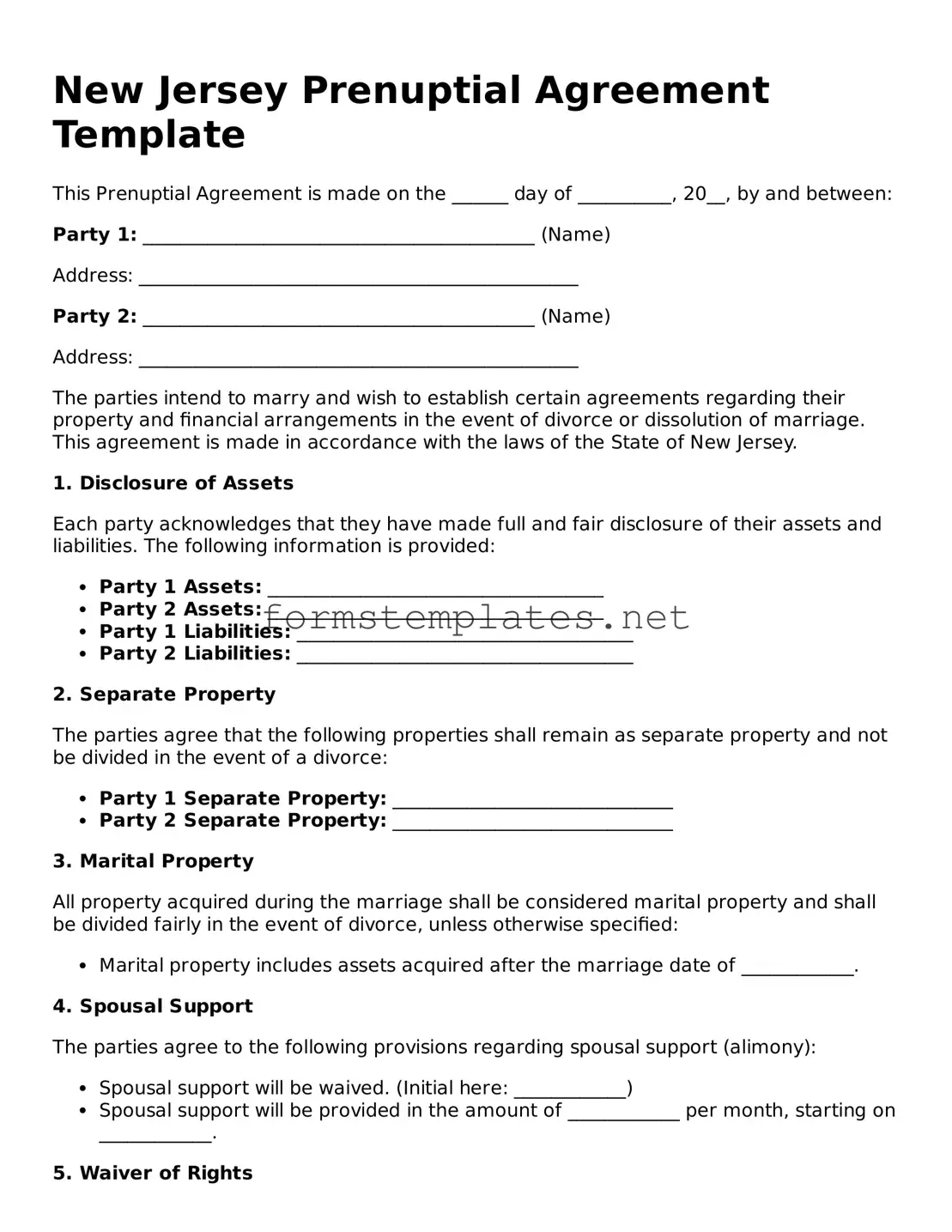Attorney-Approved New Jersey Prenuptial Agreement Template
A Prenuptial Agreement is a legal document created by two individuals before they marry, outlining the division of assets and financial responsibilities in the event of a divorce. In New Jersey, this agreement can provide clarity and protection for both parties, ensuring that each person's rights and interests are safeguarded. Understanding the New Jersey Prenuptial Agreement form is essential for anyone considering marriage, as it can help prevent future disputes and provide peace of mind.
Open Editor Now

Attorney-Approved New Jersey Prenuptial Agreement Template
Open Editor Now

Open Editor Now
or
⇓ PDF Form
Your form still needs attention
Finalize Prenuptial Agreement online — simple edits, saving, and download.